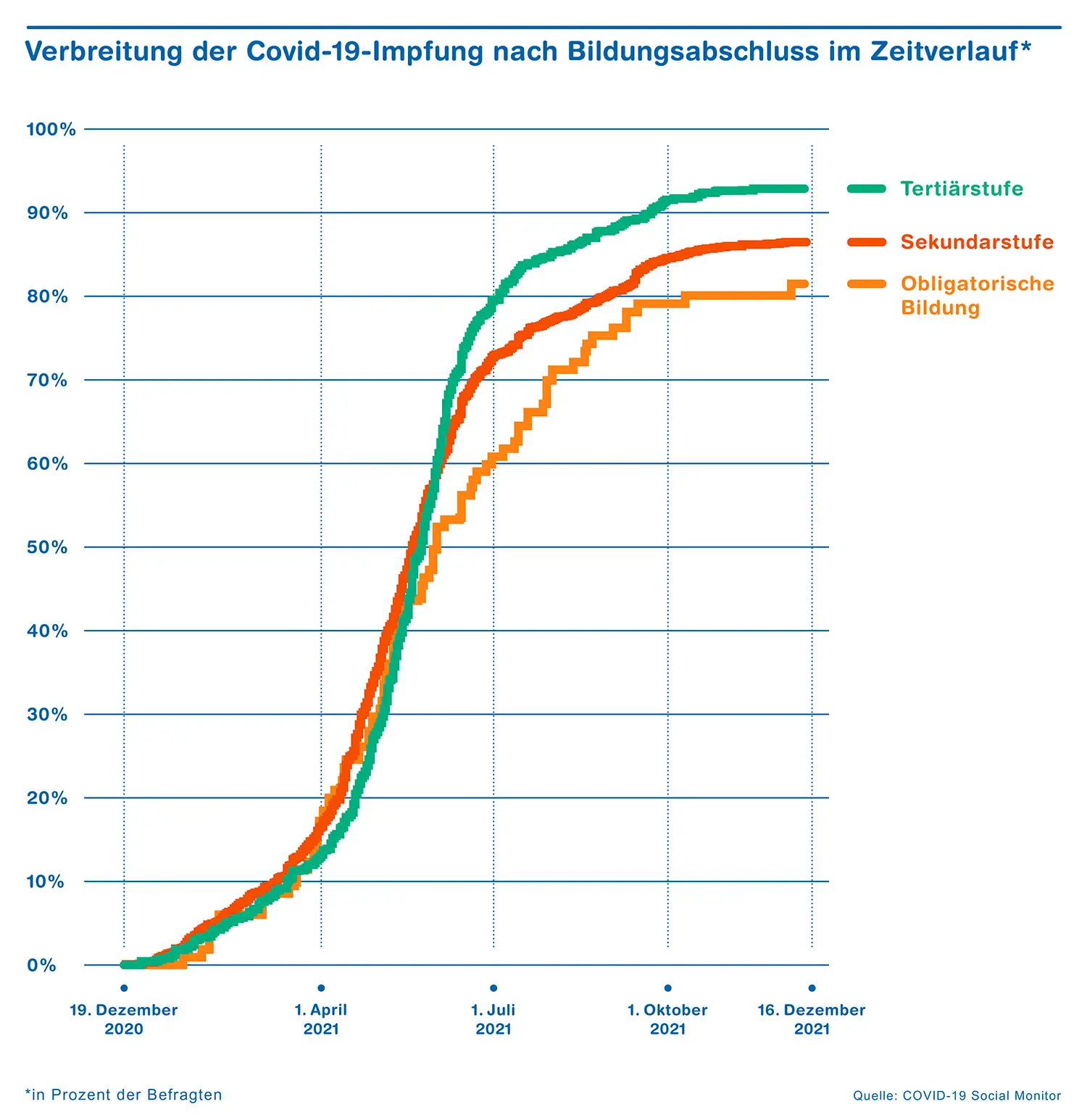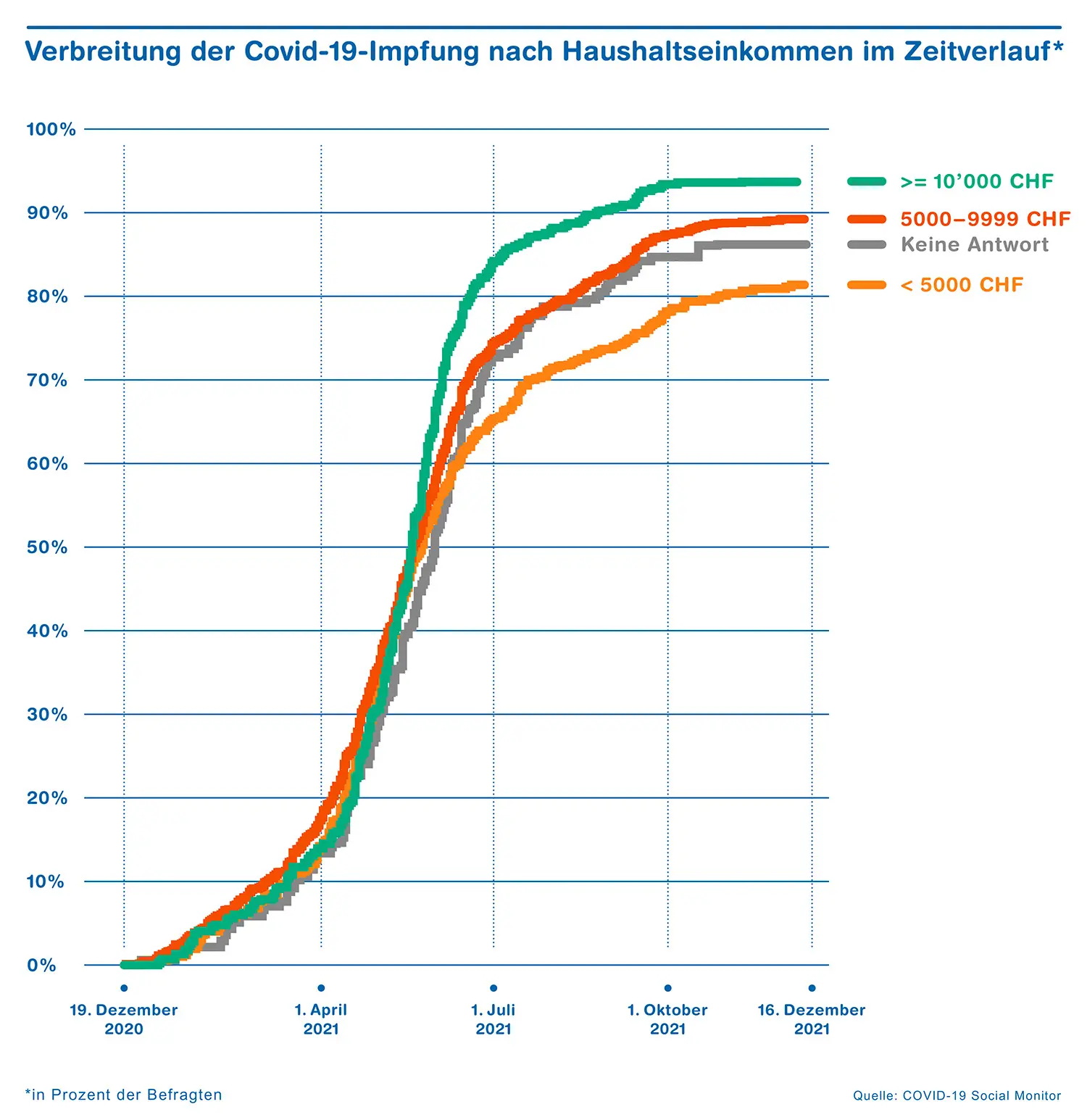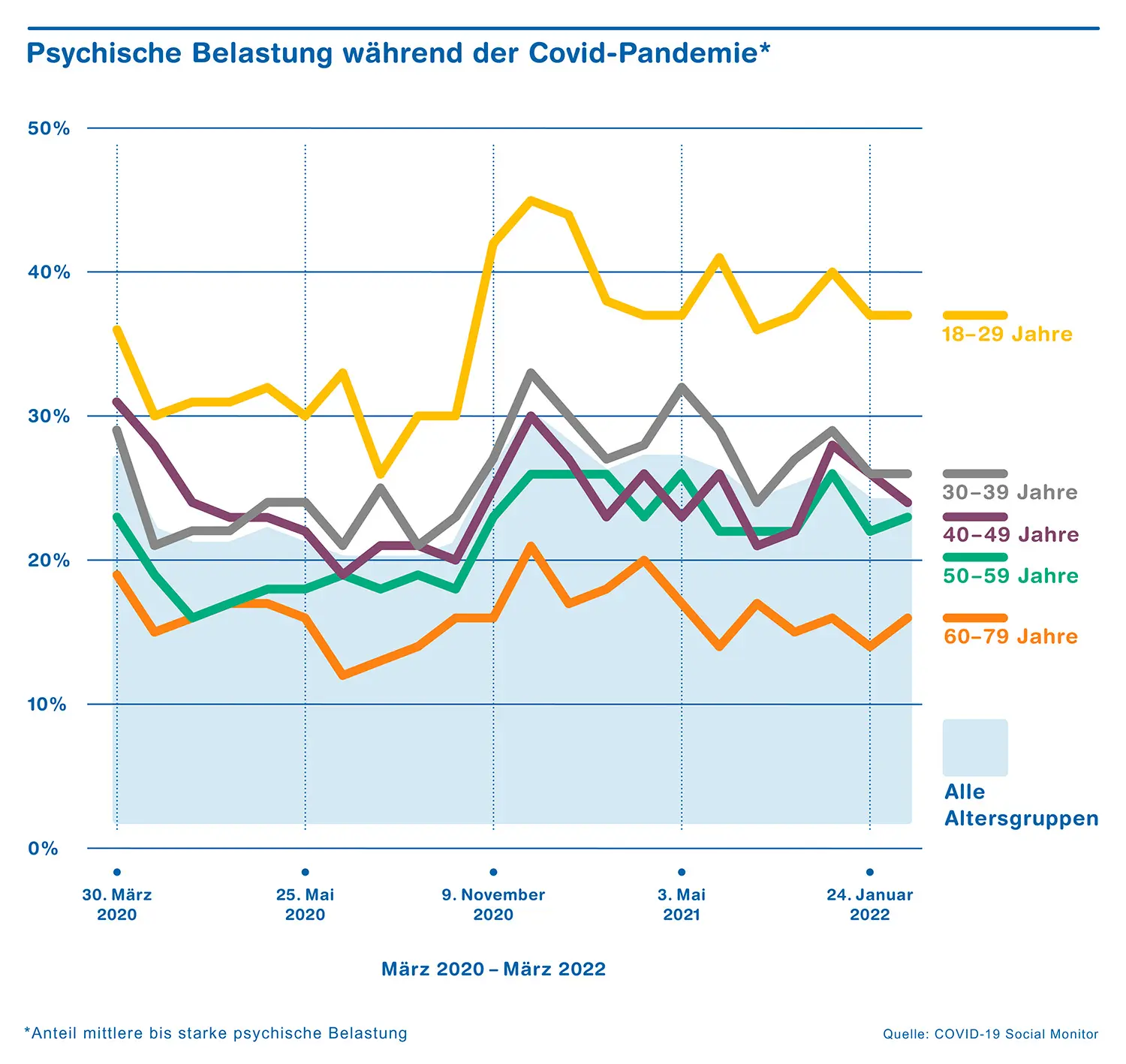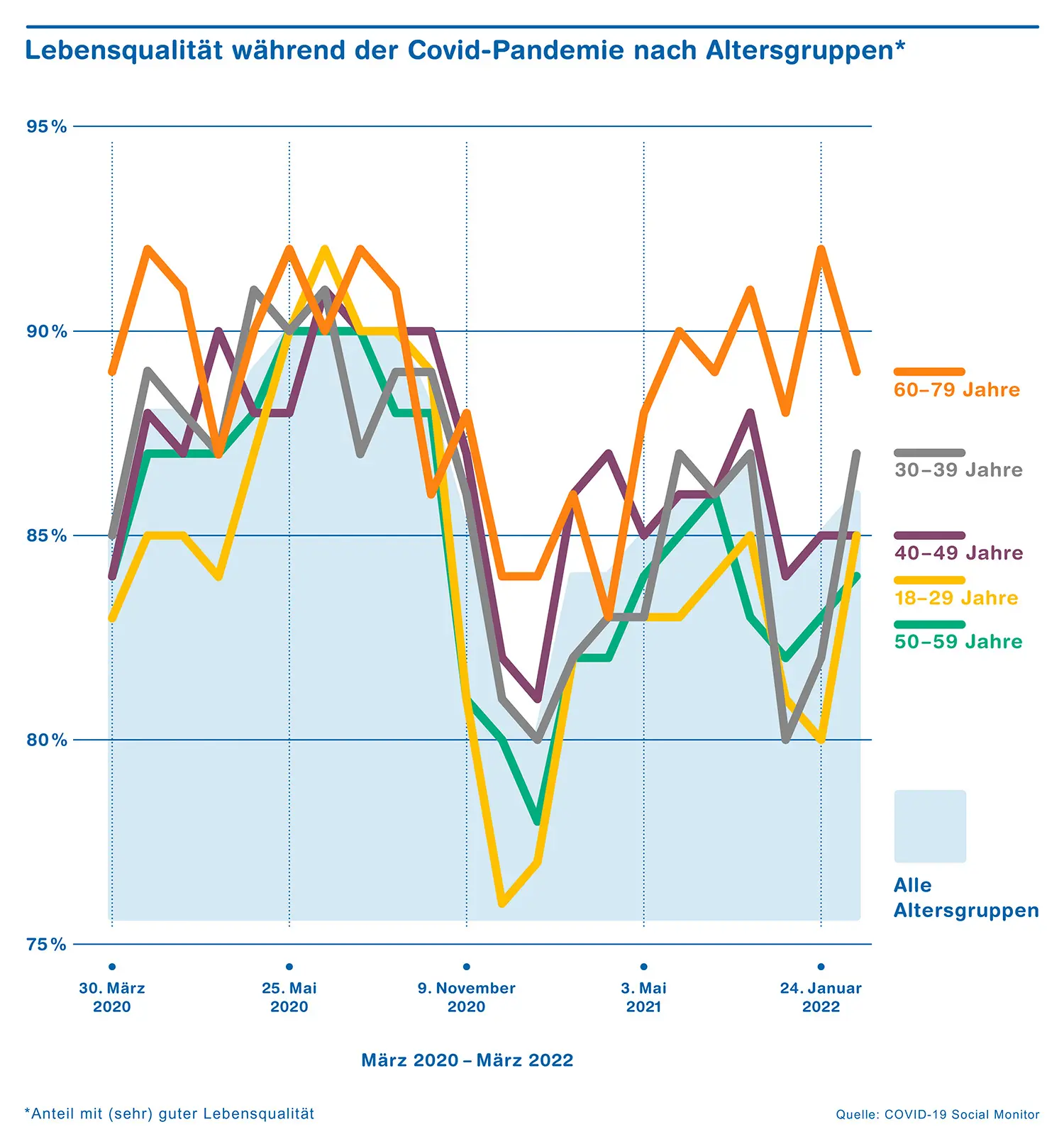Willingness to Be Vaccinated Dependent on Socioeconomic Factors
Individuals with a higher income and educational background and those living in an urban environment are more likely on average to be vaccinated against COVID-19. At the same time, the quality of life among the Swiss population has remained stable in recent months. These are the findings of the ZHAW COVID-19 Social Monitor.

In Switzerland, individuals with an average or above-average household income or a better level of education are more likely to be vaccinated against COVID-19 despite generally high vaccination rates in all population groups. This group also includes people living in urban areas, suffering from a chronic disease, or enjoying higher health literacy. These are the results of a recent study by the ZHAW School of Management and Law published in the “Swiss Medical Weekly” scientific journal. It is based on survey data collected for the “COVID-19 Social Monitor” between June and December 2021 from approximately 2,400 individuals in Switzerland. The COVID-19 Social Monitor is conducted regularly by ZHAW in collaboration with the Universities of Zurich and Bern.
Doubting the vaccine’s safety and efficacy
People who live in rural areas are less likely to be vaccinated. The same applies to those who are less consistent in adhering to protective measures or who have less trust in the authorities and science. “The decision for or against vaccination is therefore related to socioeconomic factors and personal attitude patterns, among other things,” explains study leader Marc Höglinger from the Winterthur Institute of Health Economics at ZHAW.
Unvaccinated respondents most often cite fear of side effects and doubts about the vaccine’s effectiveness (57 percent each) as reasons for not having the vaccination. Slightly more than one-third of them also say they prefer natural or traditional remedies. “How easily accessible vaccination is to a person probably also plays a role,” adds Höglinger. For example, online registration may have been a hurdle for some population segments, or they may have had difficulty taking time off from work for a vaccination appointment.
Less loneliness among the young
The latest survey results from the COVID-19 Social Monitor in the second half of March 2022 also confirm that the Swiss population’s well-being has remained relatively stable in recent months. Some 86 percent rate their current quality of life as good or very good. In December 2021, this figure was 84 percent. “The changes are relatively small and are within the scope of typical seasonal fluctuations,” explains Höglinger. Increased psychological stress is felt by 24 percent of the total population (26 percent at the end of 2021). At 37 percent, however, this figure is still significantly higher among people between 18 and 29. In contrast, however, feelings of loneliness decreased in this age group, from 12 percent in December 2021 to 8 percent in March 2022.
The public’s trust in the authorities and the media has risen somewhat, with 69 percent of respondents expressing a high level of trust in the authorities. In comparison, 61 percent said the same about the media. However, the current percentages are lower than at the start of the pandemic (April 2020: 82 and 69 percent, respectively). Seventy percent now have a high level of trust in science – the highest figure in two years.
One in six still working from home
In line with the government’s relaxation of regulatory requirements, the population has stopped consistently implementing the recommended hygiene and behavioral measures. For example, 56 percent of respondents still practice some form of social distancing most of the time, compared with 77 percent in December 2021. “However, a notable proportion of the population continues to restrict themselves in some areas,” says Höglinger. For example, about one-fifth continue to forgo private visits most of the time or stay at home. Remote working also remains relatively widespread, with 16 percent of respondents still working from home.
Regular surveys
Since the beginning of the pandemic, the COVID-19 Social Monitor has been conducting regular surveys to investigate the impact of the Corona crisis on the population. Between 1,492 and 2,802 individuals from all parts of the country have participated in each survey. This allows representative statements to be made for Switzerland on the development of the indicators recorded over time. Consequently, the survey shows changes in the well-being, health status, employment situation, and behavior of the Swiss population throughout the pandemic. The current, detailed results are published online a few days after each survey. The study is a joint project by the Winterthur Institute of Health Economics of ZHAW, the Institute of Epidemiology, Biostatistics and Prevention of the University of Zurich, and the Clinical Trial Unit of the University of Bern. A total of 22 surveys were conducted between 30 March 2020 and 24 March 2022.
Contact
Marc Höglinger, Winterthur Institute of Health Economics, ZHAW School of Management and Law, phone: +41 (0)58 934 49 80, email: marc.hoeglinger@zhaw.ch
Sarah Heiniger, Winterthur Institute of Health Economics, ZHAW School of Management and Law, phone +41 (0)58 934 46 67, email: sarah.heiniger@zhaw.ch
Frederic Härvelid, Communications, ZHAW School of Management and Law, phone: +41 (0)58 934 51 21, email: frederic.haervelid@zhaw.ch



